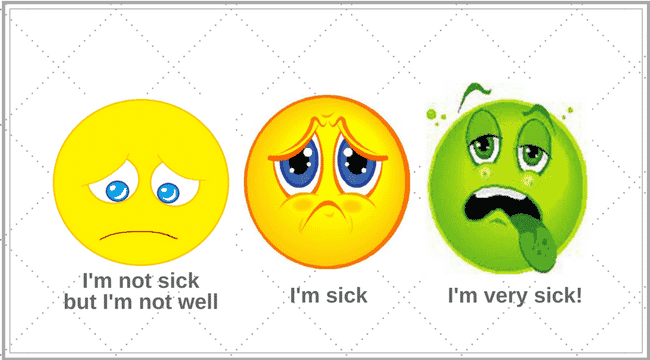It can take years of slowly accumulating mercury or other toxic metals before you begin to experience symptoms. When you do become symptomatic, you have reached what is referred to as “your body’s toxin burden level.”
Usually, symptoms are initially subtle, but gradually get worse. Moreover, new symptoms develop over time. However, sometimes they occur suddenly, such as after the unsafe removal of amalgam fillings or within days or weeks after a vaccine or flu shot.
The most common sources of exposure to mercury are:
- Dental amalgam fillings (silver tooth fillings contain over 50% mercury and constantly emits poisonous mercury vapor)
- Vaccines and flu shots (high in mercury, aluminum, formaldehyde and other neurotoxic substances)
- Fish and shellfish (nearly all fish and shellfish except sardines and anchovies is now polluted with mercury. Many are also polluted with dioxins, hormones, antibiotics, color dyes, and poisonous chemicals from the pesticides in fish food)
- Cosmetics such as lipsticks, foundation and mascara, facial creams and body lotions, soaps and shampoos, baby oil, baby powder, eye contact lens solution and other personal hygiene products
- Non-organic foods (from fertilizers and pesticides)
- Tap and bottled water
- Tattoos (mercury in the ink)
Symptoms of a Mildly Mercury Toxic Case:
In general, you will be able to work full time, socialize, and live a rather normal life while coping with the following symptoms:
- Lower energy levels
- Mild gut issues
- Minor candida overgrowth
- Mild depression and anxiety
- Feeling abnormally reclusive, uncomfortable, shy or insecure in public
- Slightly irritable with mild emotional ups and downs
- Feeling that your mind’s thoughts are busier than usual
- Feeling agitated and uncomfortable in your body for no apparent reason
- More chronically fearful or worried than usual
- Allergies or minor food sensitivities
- Nutritional deficiencies
Symptoms of a Moderately Mercury Toxic Case:
- Struggling to maintain a full-time job or caring for home/children
- Reduced work hours as a result of health issues
- Unable to attend social gatherings
- Not reliable keeping appointments due to unpredictability of symptoms
- Headaches and brain fog
- Fearful and racing thoughts
- Being more reclusive or socially insecure in public
- More severe emotional mood swings
- Crying spells or irritable for no apparent reason
- Simple tasks become too stressful
- Depression, anxiety, insomnia, chronic fatigue, and panic attacks
- Fibromyalgia symptoms
- Skin issues such as burning, itching, and rashes
- Irritable Bowel Syndrome (IBS)
- Weak digestion or leaky gut
- Food sensitivities
- Moderate candida overgrowth
- Dysbiosis
- Poor appetite
- Alcohol and coffee intolerance
- Frequent urination
- Bladder irritation / Interstitial Cystitis
- Vulnerable to infections (bladder, prostate, vaginal, lung, sinus, throat)
- Nutritional deficiencies
- Poor assimilation and methylation
- Hypo-thyroid condition
- Likely to seek help from medical professionals for many of the symptoms above without improvement from conventional treatment
Symptoms of a Severely Mercury Toxic Case:
- Unable to work and completely house bound
- Unable to do any basic required tasks (pay bills, empty trash, etc…)
- Unable to run errands or go shopping
- Extreme fear, stress, and exhaustion in public
- Maddening and non-stop compulsive thinking
- Suicidal thoughts and fear of dying alone or being alone
- Severe gut issues
- Headaches and severe head pressure
- Brain fog and poor memory
- Dizziness or vertigo
- Nerve twitches
- Skin problems worse than medium symptoms (stinging like battery acid)
- Paranoia
- Heart palpitations
- Oxygen deprivation, difficulty breathing
- Severe and uncontrollable crying spells or anger outbursts
- Sensitivity to bright lights and normal sounds
- Chemically sensitive (perfume, air fresheners, house cleaners, smoke)
- Unable to consume alcohol or caffeine
- Frequent urination even worse than medium symptoms (especially at night)
- Bladder irritation / Interstitial Cystitis
- Weak appetite now leads to noticeable weight loss
- Terrifying adrenaline rushes (spontaneous fight or flight responses)
- Severe body aches and joint pain
- Feeling uncomfortable in your own skin
- Fearful you are going insane (Associated with Mad Hatter’s disease)
- Feeling surreal (not in reality)
- Declining vision, sometimes with floaters
- Watching TV or listening to music becomes too stressful
- Chronic infections (bladder, prostate, vaginal, lung, sinus, throat, flu)
- Sever hypo-thyroid condition (with a TSH over 2.0)
- Nutritional deficiencies become more severe
- Very high or low B12 levels (due to poor assimilation/methylation)
- Low iron and high copper level is common
- Extensive conventional treatment from doctors provides no relief from the symptoms above
Health conditions often related to chronic mercury and heavy metal toxicity:
- Muscular Sclerosis,
- Autism, ADD, ADHD, OCD
- Learning disabilities
- Lou Gehrigs Disease
- Bi-polar
- Alzheimers
- Parkinson’s Disease
- Dementia
- Brain tumors
- Infertility
- Alcoholism
- Schizophrenia
- IBS/SIBO
- Dysbiosis
- Colitis or Crohn’s
- Celiac Disease
- Lyme Disease
- Autoimmune disorders
- Some cancers
Mercury and Heavy Metal Detox Specialist, Connie Fox HHP, CHC, AADP
www.FreedomFromMetals.com
________________
This content is provided for informational purposes only and is not intended to diagnose, cure, treat or prevent any disease, illness or health condition. It is recommended to discuss health or nutrition related matters with your physician.

